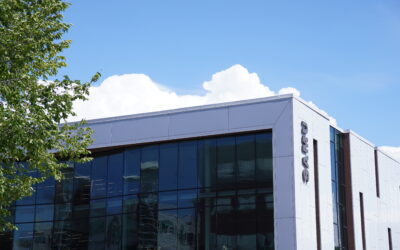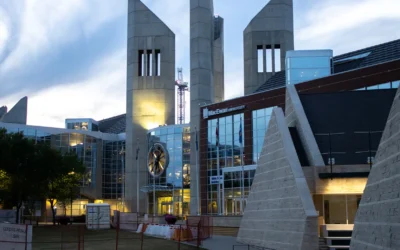NASH 84, Canada’s largest student journalism conference, created by the Canadian University Press (CUP), took place over the weekend of Feb. 25-27.
The three-day virtual event was hosted by Montréal’s The Concordian, Concordia University’s student publication and CUP member. The event brought student journalists from all over the country together with various industry veterans.
The event was hosted entirely online through TriplePlay, a Toronto-based virtual hangout app used by companies like TELUS, McGill University, and Avanti. TriplePlay allows users to join different “tables” to easily converse and network with others while panellists present on TriplePlay’s virtual “stage.”

The event showcased 37 sessions from over 65 different journalists. Topics ranged from “Reconciling the Media & Transforming Indigenous Narrative” hosted by Stony Plain’s Brandi Morin to “The Inside Scoop on Canadaland” by Canadaland’s founder Jesse Brown.
During her Friday keynote, Morin spoke about how journalists should move away from creating their stories with a colonial mindset. This practice can be destructive as it pins colonial society as the protagonist, undermining the experiences of minorities.
Another prominent speaker at the conference was Edmonton’s Brandy Yanchyk, a documentary filmmaker and host of the travel documentary series Seeing Canada. In an interview a few days before her Saturday seminar “Turning Journalism into Documentary Filmmaking,” Yanchyk spoke about the importance of technical skills in getting a job in the media.
“If you’re able to have those skills, you can make different documentaries and other things that you’d never be able to make if you depended on somebody else,” said Yanchyk.
For those wanting to go into science journalism, Toronto science journalist Dan Falk says it’s difficult to effectively communicate a message that some people don’t want to hear.
“I recently, for example, read Katharine Hayhoe’s book, it’s called Saving Us…. It’s about how to communicate the issues surrounding climate change,” explained Falk.
“One of the things she mentions is you can’t hammer people with facts over and over and over again and hope that the facts stick. It’s actually more difficult and requires more nuance, and you have to use compassion and that sort of thing, which I think makes a lot of sense.
However, the best advice Falk gives science journalists is to be well informed, stay curious, and read as much as you possibly can.
However, the conference’s general theme centred around one word: evolve. As such, journalists are in a constantly changing industry that demands unrelenting hard work, a varied skill set, and unwavering determination.
Hadassah Alencar, NASH’s Conference Manager and The Concordian’s editor-in-chief, says this theme was pivotal in choosing NASH’s presenters.
“We really wanted to find journalists that could speak to the adaptations that our whole journalism landscape is going under,” said Alencar.
“(We wanted to) have them showcase what they’re doing in their field right now, how they’ve adapted to the changes, and how can we do better as student journalists to really be competitive and have the skillset that’ll help us to succeed in journalism today.”
Though there was a lot of helpful advice and information at the conference, Alencar hopes NASH helped young journalists get inspired.
“I hope that they take away new ways of thinking about how they can achieve their goals. I hope they get inspired. I hope they learn more. I hope they can make connections with the journalists that they see,” said Alencar. “A lot of these journalists that are coming out, they want to talk to students, they support student media, they support our development in our profession. These are people we can actually reach out to and form connections with.”
“I’m hoping that this is in every way beneficial to all the students who are watching.”





0 Comments